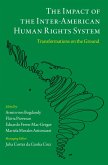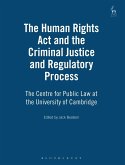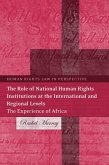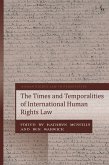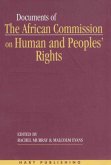This book examines the impact of international trade rules on the promotion and protection of human rights, and explains why human rights are an important mechanism for assessing the social justice impact of the international trading system. The core of the book is an in depth analysis of the various ways in which international trade law rules impact upon human rights protection and promotion, emphasising the significance of the jurisdictional context in which the human rights issues arise: coercive measures that are taken by one country to protect and promote human rights in another country are distinguished from measures taken by a country to protect and promote the human rights of its own population. The author contends that international trade law rules have utilised certain ad hoc mechanisms to deal with particularly pressing human rights concerns in the trade context, but also argues that these mechanisms do not provide systemic solutions to the inter-linkages between the two legal systems. The author therefore examines mechanisms by which human rights arguments could be more systematically raised and adjudicated upon in WTO dispute settlement proceedings, highlighting future opportunities and difficulties. He concludes by considering broader systemic issues outside the dispute settlement process that need to be addressed if trade law rules are to successfully protect and promote human rights.
Bitte wählen Sie Ihr Anliegen aus.
Rechnungen
Retourenschein anfordern
Bestellstatus
Storno




